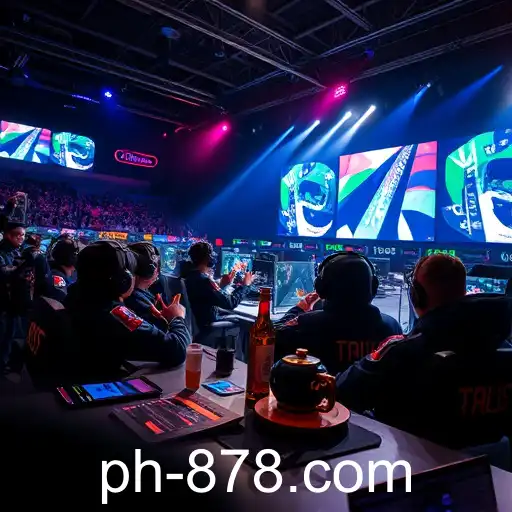ph878 | The Thriving World of Esports: A Digital Evolution

The world of competitive gaming has rapidly evolved over the past decades, metamorphosing into a cultural phenomenon known today as esports. This realm of digital athletics has become a beloved pastime for millions and a professional calling for thousands. With keywords like 'ph878' guiding fans through an ocean of gaming content, esports stands out as a category encompassing a diverse array of competitive titles spanning various genres and platforms. From the high-speed action in first-person shooters (FPS) to strategic showdowns in multiplayer online battle arenas (MOBAs), each game offers unique dynamics that challenge players in differing ways. Major titles, such as League of Legends, Dota 2, and Counter-Strike: Global Offensive, are not just games; they are globally recognized events that draw massive live audiences both online and offline. In addition, games like Fortnite and Call of Duty have captivated younger demographics, combining skill-based gameplay with an engaging social component. These games host tournaments with prize pools that rival traditional sporting events, sometimes offering millions of dollars to the top competitors. However, the landscape of esports is not just limited to playing games. It encompasses broadcasting, analysis, content creation, sponsorship, and tech innovation. Major streaming platforms such as Twitch and YouTube Gaming provide a stage for gamers to showcase their skills and personalities to a worldwide audience. This spectator-driven approach has redefined how people consume gaming content, combining real-time interaction with entertainment. The ecosystem is further supported by brands eager to connect with younger, tech-savvy audiences through sponsorships and advertisements. Esports organizations play a crucial role, akin to traditional sports teams, nurturing talent, and building a cohesive brand presence across various competitions. As the esports industry grows, it continues to break new ground with technological advancements, including virtual reality (VR) and augmented reality (AR), promising to revolutionize the way games are played and experienced. Despite its rapid growth, esports faces challenges such as maintaining competitive integrity and addressing the potential for player burnout. However, as it matures, esports will likely continue to define itself as a critical component of the broader entertainment and sports industry, evolving with each passing technology and cultural shift.



